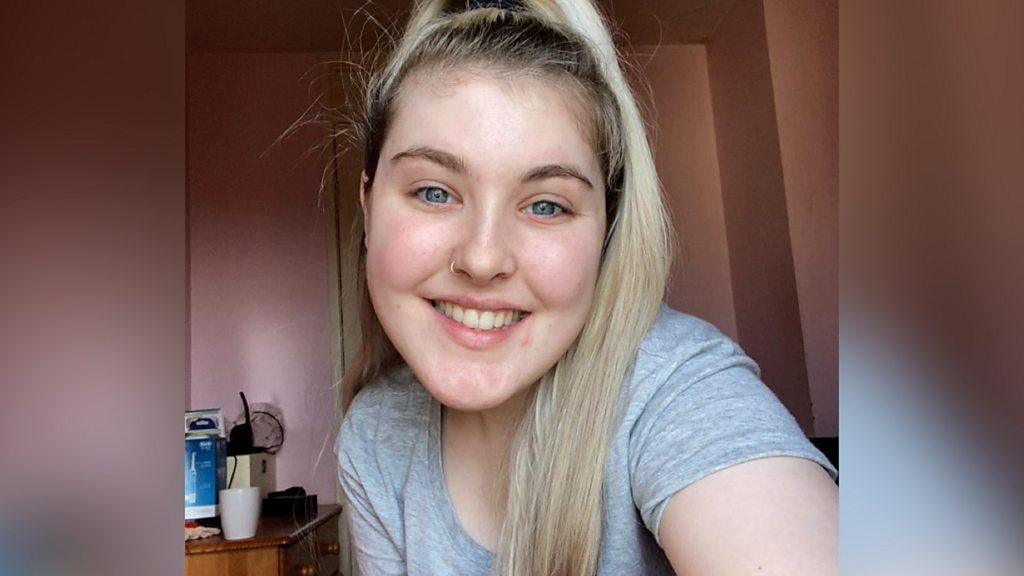'Having a stammer can make you stand out in school'
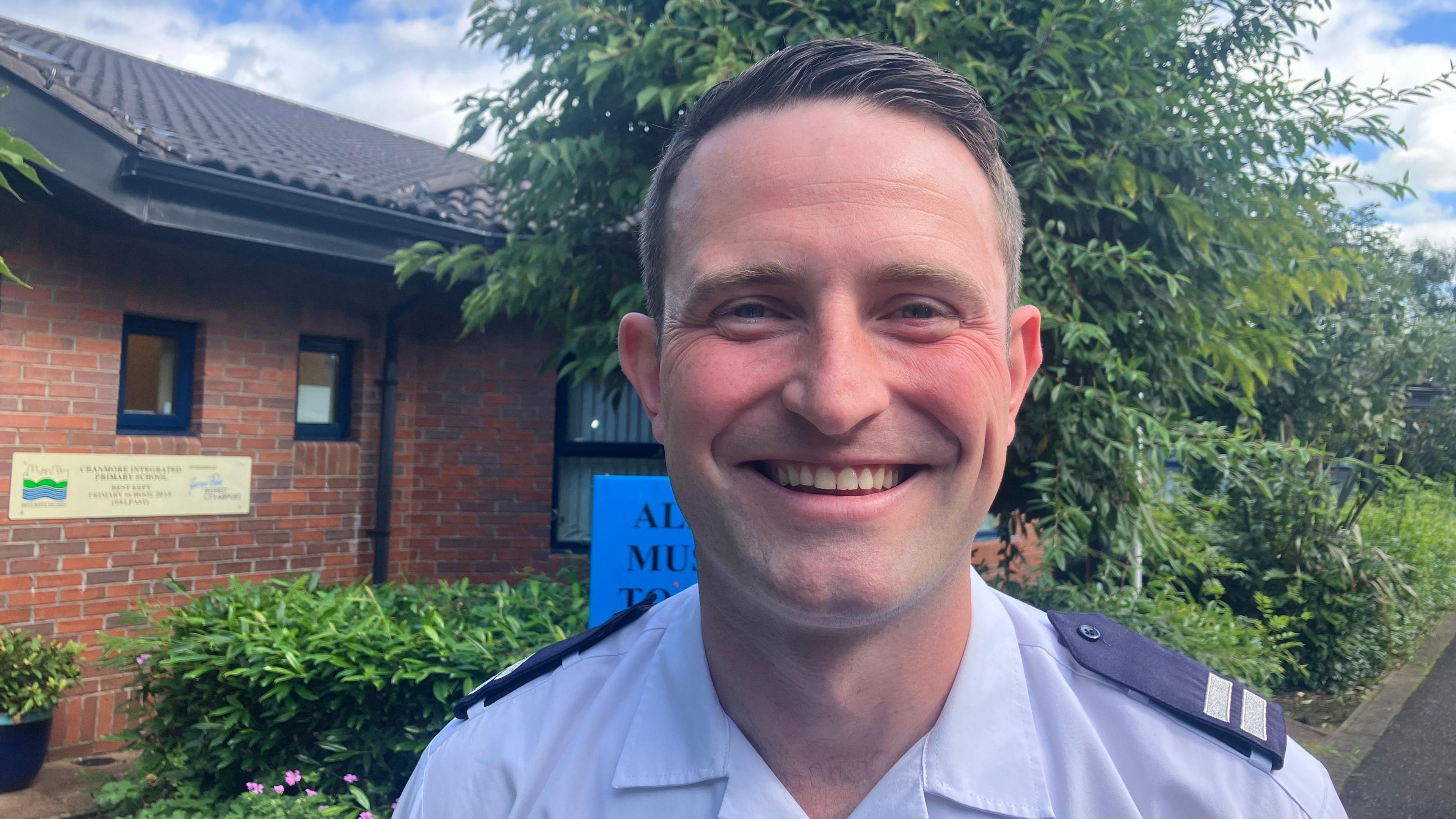
Peter Bradley struggled with a stammer while at school
- Published
"Having a stammer makes you stand out, particularly in school when people maybe focus on differences."
Peter Bradley is now in the Northern Ireland Fire and Rescue Service (NIFRS), but can remember struggling with a stammer at school.
"It can be tough when you are different and you talk differently," he told BBC News NI.
"You can't hide having a stammer really so it can be difficult."
Buddy Chat is a new school schem, externale that should help those like Peter, who have speech or communication needs, to get the support and empathy of their classmates in school at a younger age.
The video lessons, for children from P4 onwards, have been developed by the Royal College of Speech and Language Therapists in Northern Ireland (RCSLTNI), with help from teachers and pupils.
And some TV royalty has also given the lessons his backing.
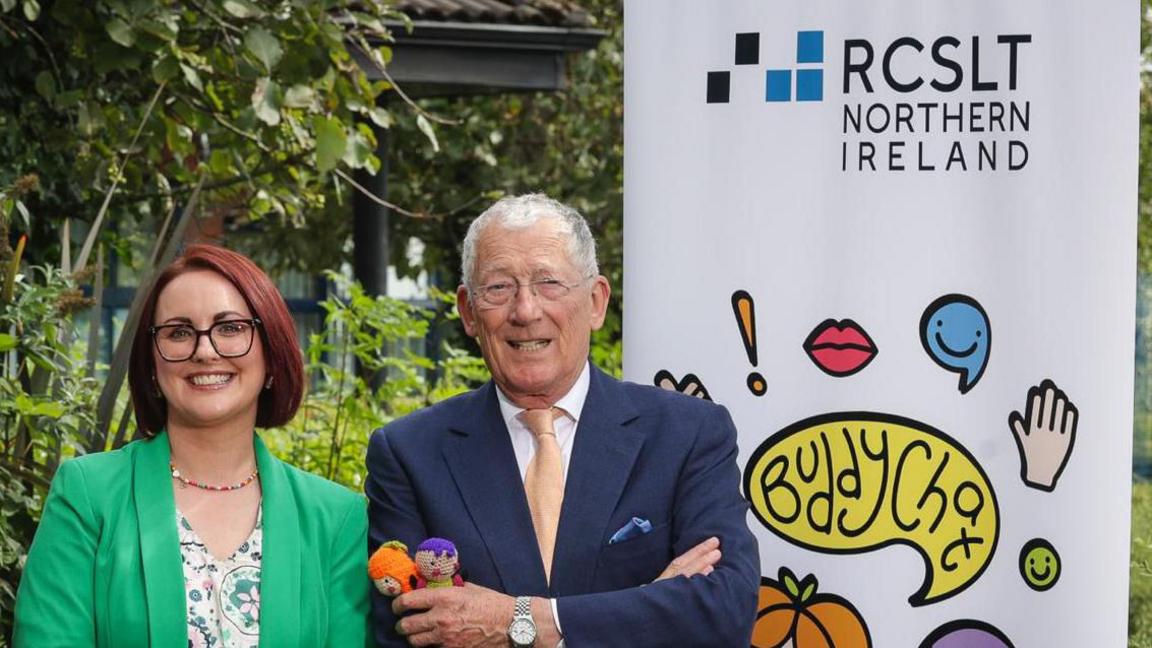
The Apprentice and Countdown star Nick Hewer is President of the Royal College of Speech and Language Therapists
Nick Hewer may be better known as the presenter of the TV programme Countdown and one of Sir Alan Sugar's straight-talking advisors on The Apprentice.
But he is also the President of the Royal College of Speech and Language Therapists.
He travelled to Cranmore Integrated Primary School in Belfast to see Buddy Chat for himself.
"Buddy Chat has been brought into existence because something like 10% of all young children have got some sort of communication difficulty," he told BBC News NI.
"We're addressing a whole classroom... some of those children will have communication difficulties or needs, the rest of them won't," he said.
'It's about empathy'
"It's time that those who do not have a communication need understand how to deal with those who do, and vice-versa," Mr Hewer added,
"So it's an empathetic way of supporting and understanding both sets.
"That's what Buddy Chat is about - empathy."
Mr Hewer also said that it was important, especially, to raise awareness among younger children.
"It's when they're young that they need the support most," he said.
"The younger you can teach them, the better they will be as they grow."
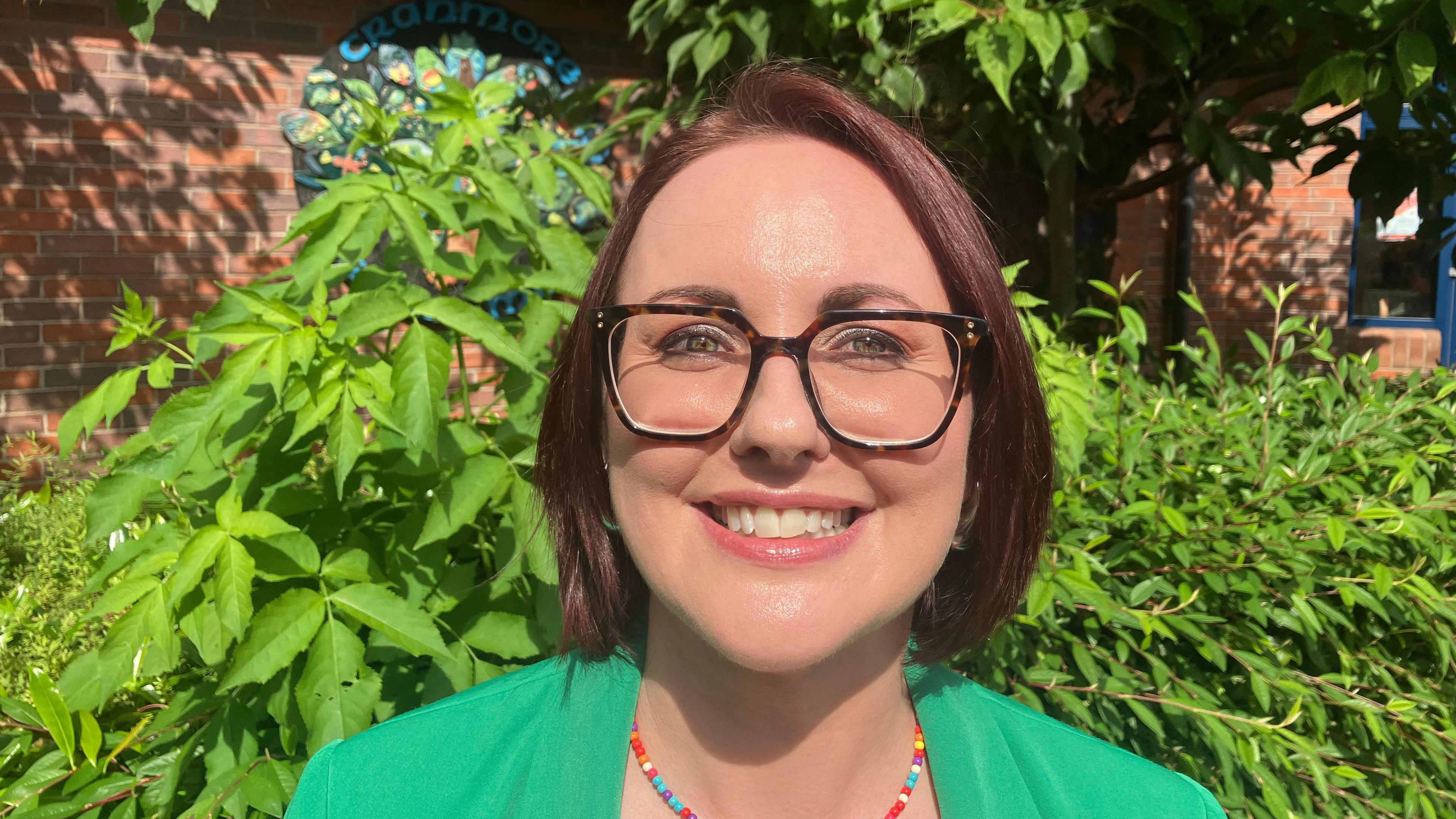
Ruth Sedgewick from RCSLT NI said help with other speech difficulties are also included
While many people think of a stammer when they think of a speech difficulty, Ruth Sedgewick from RCSLT NI said there were many different kinds of speech, language and communication needs.
"There are lots of things, and we know that roughly three in every class of thirty will experience some form of speech, language and communication need," she said.
"We've featured stammering on our lessons but we've also featured some other ones.
"Developmental language disorder, speech sound disorder or unclear speech, and communication differences that would be associated with being deaf, being autistic or having a physical disability such as a cleft lip and palate,."
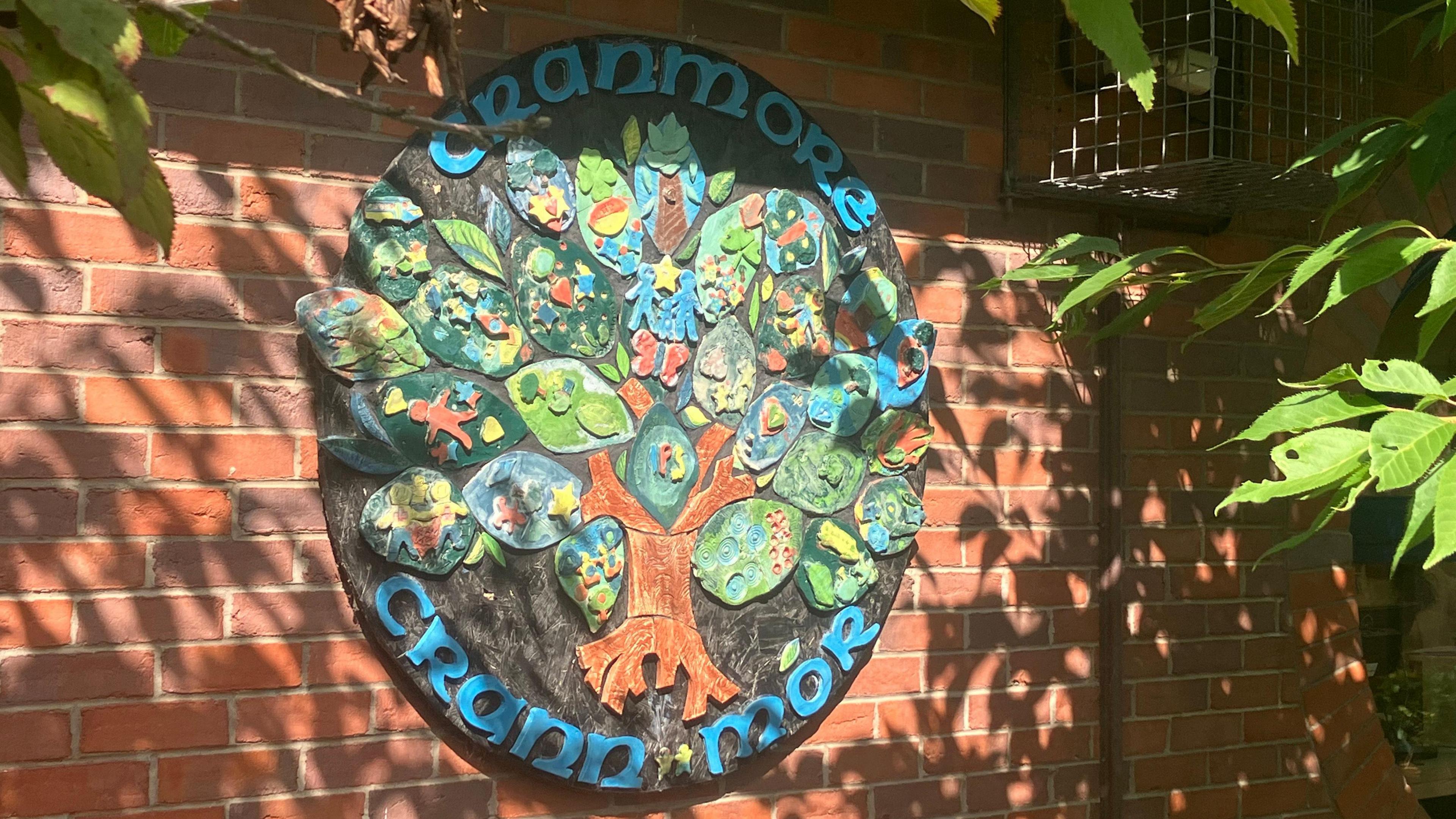
It is hoped that Buddy Chat will be rolled out across all mainstream primary schools in Northern Ireland
The video lessons feature children from Northern Ireland with speech difficulties alongside their classmates.
And Peter Bradley told BBC News NI that he thought the Buddy Chat lessons were "brilliant".
"I've watched the videos myself and they hit the right note," he said.
"Those kids who are helping others, it allows them to learn important lessons in life too about the value of helping others and the joy that can bring.
"When I started in the fire service I really struggled to say my name, to speak up.
"I think it's important that people know that their voice matters and that they have value.
"This initiative teaches kids from a young age that everyone has a voice."
The Buddy Chat lessons are available free online, external on the website of the Royal College of Speech and Language Therapists.
Related topics
- Published16 October 2023
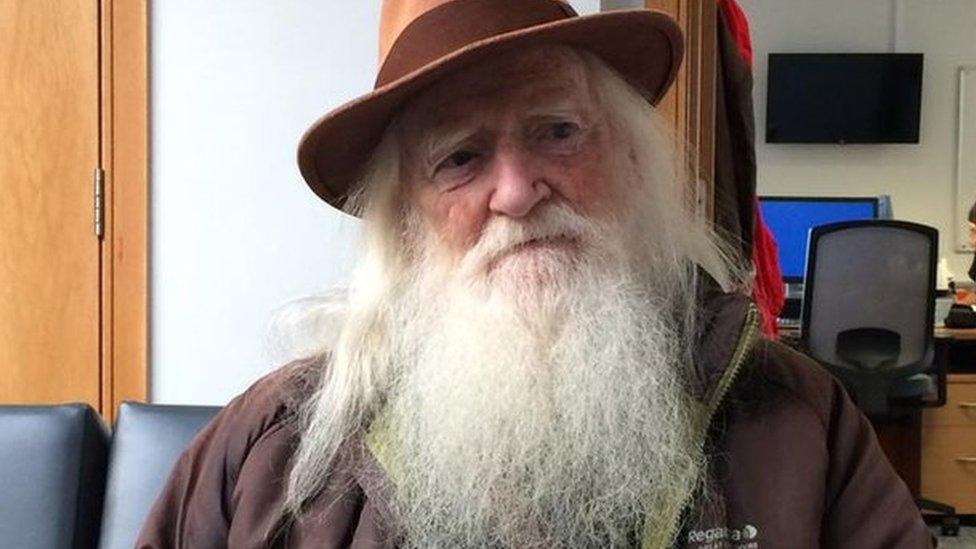
- Published22 October 2015
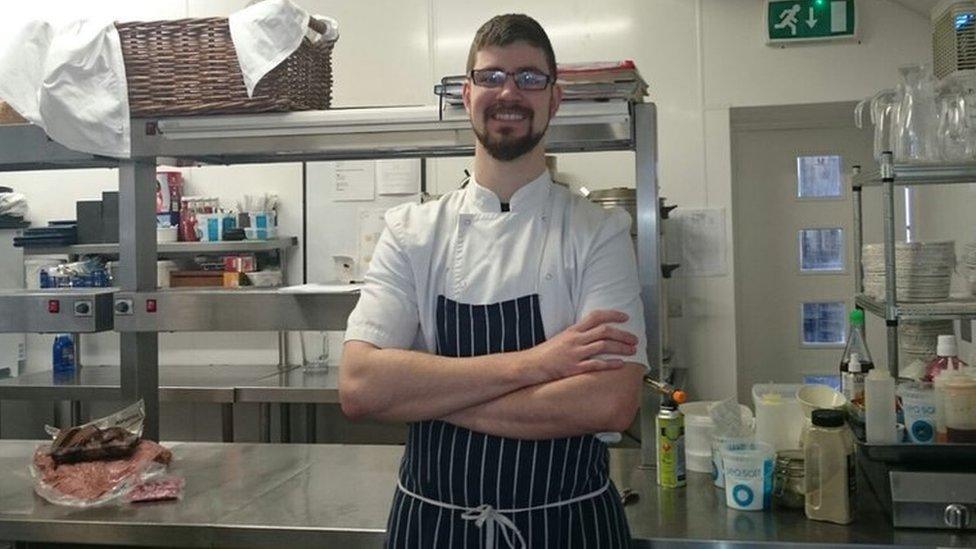
- Published18 April 2021
